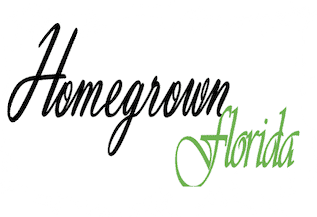Last Updated on February 1, 2024 by Homegrown Florida
Today, I want to address a more serious topic that has been bothering me – the common pitfalls and scams in the plant-buying world. I’ve witnessed nurseries selling plants that are destined to fail, and I want to make sure you avoid falling into the same traps. So, let’s dive into the key issues and how to steer clear of them.
1. Out-of-Season Vegetable Starts: A Costly Mistake
One common mistake is purchasing vegetable starts that are out of season for your area. I fell victim to this when I bought a cute jalapeno pepper starter in November, just before a frost hit. Needless to say, it didn’t survive. To save you from similar heartaches, avoid buying plants that are out of sync with your local climate. Opt for in-season plants to ensure their success.
2. Seedlings That Don’t Transplant Well: A Delicate Balance
Some nurseries sell seedlings that don’t transplant well. While certain plants, like cucumbers and squash, are finicky about being moved, I came across short pots filled with carrot seedlings. The challenge is evident – these plants couldn’t reach full size in those containers, and transplanting them would be a delicate task. Be wary of root-sensitive plants like corn, green beans, and peas being sold in trays, as their roots may not tolerate transplantation.

3. Annual Flowers at the End of Their Lifespan: Short-Lived Beauty
Another pitfall involves buying annual flowers toward the end of their lifespan. Many gardeners unknowingly purchase these blooms, only to find their gardens looking sick or dying a few weeks later. Instead, opt for perennials or start annual flowers from seeds to ensure a longer-lasting and more rewarding garden.
4. Non-Native Plants: The Deceptive Labeling
The issue of non-native plants is more complex. Nurseries may label plants as “Florida friendly” or “Florida native,” only for buyers to later discover they are neither. This can lead to invasive species disrupting local ecosystems. Research thoroughly and consider consulting resources like the Florida Native Plant Society to find authentic native plants for your garden.

5. Fruit Trees Unsuitable for the Growing Zone: A Costly Oversight
Perhaps the most infuriating trap is the sale of fruit trees that aren’t suitable for your growing zone. I’ve seen pear trees labeled as suitable for Florida, but they require chill hours that our climate cannot provide. Likewise, some citrus trees may exhibit signs of diseases like Citrus Greening, posing a risk to the future health of your tree. Research the specific needs of fruit trees before purchasing to avoid years of disappointment.
Become an Informed Gardener
While nurseries offer a wealth of gardening delights, it’s crucial to be an informed consumer. Do your research, use reputable resources, and ask questions. Nurseries can be fantastic allies in your gardening journey, but only if you know exactly what you’re buying. By becoming a knowledgeable consumer, you’ll ensure your garden thrives with healthy and suitable plants. Happy gardening!

